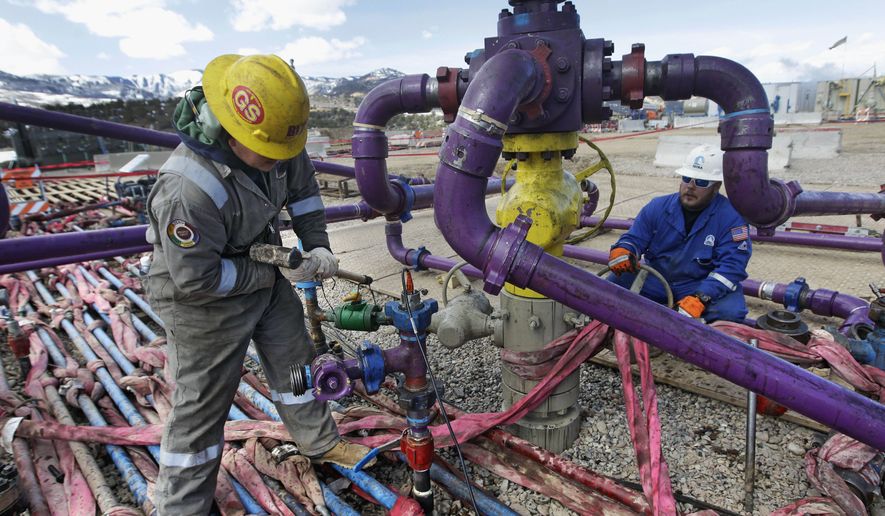The oil and gas industry, under siege from OPEC and the climate-change movement, notched a much-needed win late Tuesday in an unlikely location: liberal Boulder County, Colorado.
The board of trustees of Erie, Colorado, which straddles Boulder and Weld counties, voted 4-3 to reject an “emergency” one-year moratorium on new drilling permits within the town’s borders over concerns that the measure would send an anti-business signal and result in costly lawsuits.
Instead, trustees said they would work on crafting memoranda of understanding (MOUs) with Encana Oil and Gas and Anadarko Petroleum to address community concerns about noise, truck traffic and setbacks from housing.
“We were elected to represent our citizens and do what we honestly believe is best for the town, and I don’t believe that enacting a moratorium is what is best for the town,” trustee Waylon Schutt said in the Longmont Times-Call. “I think it will hinder our ability to negotiate MOUs. I think it will send a lot of taxpayer money toward litigation.”
The Erie vote represents the latest in a string of defeats for the anti-fracking movement in Colorado, which has seen the momentum shift after posting some early victories. In 2012 and 2013, five primarily liberal college towns with little oil and gas development approved anti-fracking measures, but three of those have since been thrown out by judges.
Last year, the Brighton city council voted to repeal a drilling moratorium, followed by the defeat at the ballot box of a proposed two-year fracking moratorium in Loveland. A statewide anti-fracking initiative backed by Democratic Rep. Jared Polis was pulled in August under heavy pressure from the business and Democratic Party leaders.
Elsewhere, oil and gas companies face a host of powerful foes, starting with OPEC, which has flooded the international market with crude, driving down the price of oil per barrel to $43 in an effort to squeeze the U.S. industry and put smaller producers out of business.
Meanwhile, the climate-change movement is coming off an enormous victory in New York, where state officials imposed in December a statewide ban on hydraulic fracturing over health concerns, which all but eliminates oil and gas production in the state’s Marcellus Shale.
Climate-change activists are now targeting California, urging Democratic Gov. Jerry Brown at a Wednesday protest at the state capitol in Sacramento to enact a statewide moratorium on fracking.
Activists rejoiced when the White House announced in January that President Obama would veto any bill to approve the Keystone XL pipeline. The Republican-led House approved Jan. 9 a pro-Keystone bill anyway, and the Senate is considering similar legislation.
On Wednesday, the House continued its efforts to boost the U.S. oil and gas industry, approving a bill that would expedite the Energy Department’s approvals of natural gas experts by a vote of 277-133.
The Erie board had been heavily lobbied for weeks by advocates on both sides. While supporters of the moratorium blasted the vote, industry and business leaders commended Erie’s decision to work instead with local companies to alleviate problems.
At Tuesday’s meeting, Encana agreed to implement 90-day pause on filing drilling permits while the MOUs are being negotiated with the Erie board.
“The decision reflects the choice to pursue leadership rather than activism,” said Energy Council of West Weld chairman Chad Auer in a statement. “Erie continues the example set by other communities in the state that looks for ways to balance the prosperity and value delivered by the energy industry with preservation of neighborhoods and nature.”
• Valerie Richardson can be reached at vrichardson@washingtontimes.com.




Please read our comment policy before commenting.